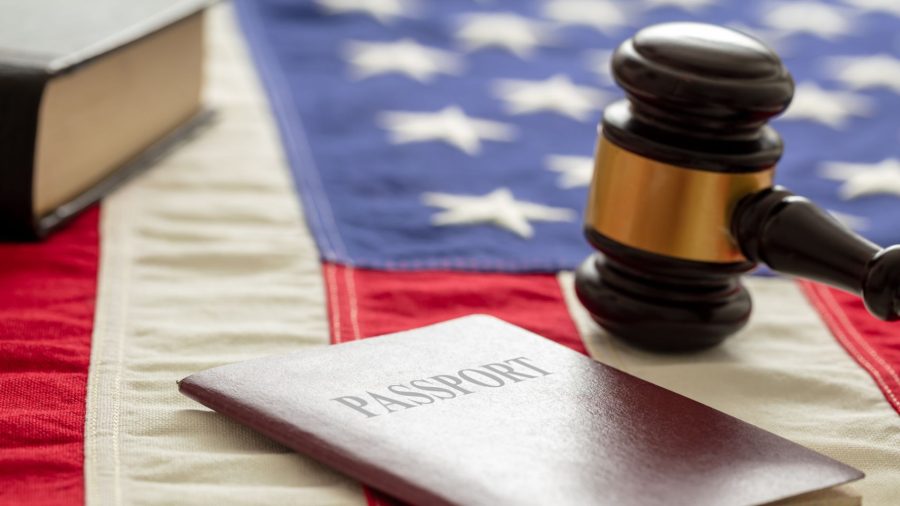What is Form I-601, Application for Waiver of Grounds of Inadmissibility?
Form I-601 is a waiver application for certain grounds of inadmissibility. When individuals apply for a visa or green card to enter or remain in the United States, they must meet various eligibility criteria. However, if they are found to be inadmissible based on certain factors, such as past immigration violations, criminal convictions, or health-related issues, they may need to seek a waiver to overcome these grounds of inadmissibility.
The I-601 Waiver is commonly used to seek relief for unlawful presence in the U.S., which is a common ground of inadmissibility. Individuals who have accrued a certain period of unlawful presence may be subject to a bar from reentering the U.S. If they have close family members who are U.S. citizens or permanent residents, they may file an I-601 Waiver to request forgiveness of the unlawful presence bar.
It’s important to note that the I-601 Waiver process can be complex, and applicants usually need to demonstrate extreme hardship to qualifying relatives if the waiver is not granted. The eligibility criteria and application process may vary depending on the specific circumstances of the case. Individuals seeking an I-601 Waiver are advised to consult with an immigration attorney for guidance tailored to their situation.
Who Needs to File Form I-601?
Form I-601, “Application for Waiver of Grounds of Inadmissibility,” is typically filed by individuals who are deemed inadmissible to the United States due to certain factors. Inadmissibility means that a person is not allowed to enter or remain in the U.S. based on specific grounds outlined in the immigration laws. The common reasons for filing Form I-601 include:
- Unlawful Presence: Individuals who have accrued a certain period of unlawful presence in the U.S. and are subject to the three- or ten-year bars may file an I-601 waiver to seek forgiveness of these bars.
- Immigration Violations: People who have violated immigration laws, such as entering the U.S. without inspection, may need to file an I-601 waiver to overcome these violations.
- Certain Criminal Offenses: Individuals with certain criminal convictions may be found inadmissible. In such cases, they might need to file an I-601 waiver to address the criminal grounds of inadmissibility.
- Health-Related Grounds: Some health-related issues can lead to inadmissibility. For example, individuals with certain communicable diseases may need to file an I-601 waiver.
- Fraud or Misrepresentation: If an applicant has committed fraud or willful misrepresentation in their immigration application or during the immigration process, they may be inadmissible and may need to file an I-601 waiver.
It’s important to note that the specific grounds of inadmissibility and eligibility criteria for the I-601 waiver can vary based on the individual’s circumstances.
Given the complexity of immigration law, individuals considering filing Form I-601 are strongly encouraged to seek guidance from an experienced immigration attorney to navigate the process effectively.
Documents Required for Form I-601
In general, applicants should include the following supporting documents with their Form I-601 submission:
- Completed Form I-601: Ensure that all sections of the form are accurately and completely filled out. The form is available on the official website of the U.S. Citizenship and Immigration Services (USCIS).
- Filing Fee: Include the required filing fee with your Form I-601. The fee may change, so check the USCIS website for the most up-to-date information.
- Cover Letter: A well-drafted cover letter can help explain the purpose of the application, provide context to the case, and list the supporting documents.
- Evidence of Eligibility: Depending on the specific grounds of inadmissibility, provide documents that demonstrate your eligibility for the waiver. This may include evidence of familial relationships, hardship factors, or other relevant documentation.
- Proof of Relationship: If the waiver is based on family relationships, provide evidence of the qualifying relationship, such as marriage certificates, birth certificates, or other relevant documents.
- Affidavits: Sworn statements or affidavits from the applicant and/or qualifying relatives detailing the hardship they would face if the waiver is not granted.
- Financial Documents: If financial hardship is a factor, provide documentation to support the economic circumstances of the qualifying relatives, such as tax returns, pay stubs, and bank statements.
- Medical Records: If health-related issues are the basis for inadmissibility, include relevant medical records and reports.
- Criminal Records: If the waiver is sought for criminal grounds of inadmissibility, provide certified copies of relevant court documents, including the charges, convictions, and dispositions.
- Any Additional Supporting Documents: Include any other documents that may strengthen your case or provide additional context to support the waiver application.
I-601 Filing Fee
The fee for Form I-601 is $930.
Until September 30, 2023, there is no fee for filing Form I-485, Application to Register Permanent Residence or Adjust Status, based on classification as an Afghan special immigrant. This waiver also applies to any associated biometric services or the filing of Form I-601.
During the same period, there is no fee for filing Form I-601 individually when accompanied by an approved Form I-130, Petition for Alien Relative, filed with USCIS in the United States for an Afghan national (beneficiary) with an immediately available visa.
Payment options include a money order, personal check, cashier’s check, or credit card using Form G-1450, Authorization for Credit Card Transactions. If paying by check, make it payable to the U.S. Department of Homeland Security.
Tips for Completing Form I-601
Ensure that all sections of the form are filled out. Failure to provide the following information will result in form rejection:
- Part 1 – Information About You
- Family Name
- Mailing Address
- Date of Birth
Remember to sign your form; an unsigned form will be rejected.
Special Instructions
- E-Notification: If you wish to receive email or text notifications, or both, confirming the acceptance of your Form I-601 at a USCIS lockbox, complete Form G-1145, E-Notification of Application/Petition Acceptance, and attach it to the first page of your application.
- Fee Waiver: Fee waiver requests will be accepted from:
- VAWA self-petitioners
- Applicants for a T visa
- Battered spouses or children of lawful permanent residents or U.S. citizens
- Applicants for Temporary Protected Status
- Special Immigrant Juveniles
- Any other noncitizen not required to undergo a determination of their likelihood of becoming a public charge under section 212(a)(4) at the time of their application for admission or adjustment of status.







